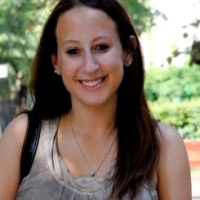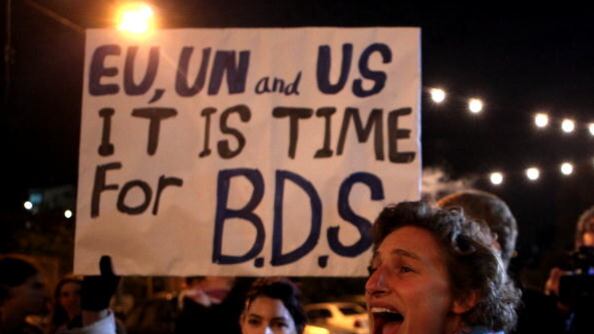In thinking through the most recent BDS controversy now unfolding at Brooklyn College—where the political science department is co-sponsoring a panel in support of a controversial movement to boycott, divest from, and sanction Israel over its policies—it is helpful to keep in mind some of the basic rules of college organizing. Students understand these intuitively, but adults often confuse them. The most important one, obviously, is that free food is the best recruiting tool there is to bring students to events.
But beyond food, students know that co-sponsorship does not equal endorsement. It has to be that way. If a student group contacts your organization saying they have a speaker they want to bring to campus and would like your co-sponsorship, how can you be sure their speaker will say 100 percent things your organization agrees with? You can’t. Thus it’s implicitly understood that you will co-sponsor on principle, because you believe this is the type of discussion or event that should be happening at your school. After the event, you have the prerogative of holding whatever debrief or critical analysis your group sees fit. You might also make a point to open the event with the acknowledgement that there are multiple perspectives on an issue. But you all agree that sharing views, whether or not they are your own, is a worthy thing to do in an academic setting. And you understand that working collaboratively on events is often the only way to afford any programming at all.

Last semester, a student group at Johns Hopkins (where I’m currently an undergraduate) organized an event called “Living Under Drones at JHU,” which was created to raise awareness about drone warfare and to start a public discussion about the role the Hopkins Applied Physics Lab plays in drone development. At the event, a petition was circulated to demand Hopkins halt drone research until more information is brought into the public forum. The Johns Hopkins Political Science department proudly co-sponsored this event because they support students organizing events like these. Everyone understood that that does not mean the Political Science department endorses anti-drone activity, or the petition itself, and that even if they did, they would not be able to go on record about it. I thought it was great that the school provided institutional support to student efforts, legitimizing the students’ drive to have conversation, while not endorsing any specific views.
A third rule of college organizing is that controversy sells. If BDS opponents think that a public uproar against it will make students uninterested in the material, then they should probably consider enrolling in Intro to Psychology. When the University President and Political Science professors support the event and government officials and activists oppose it, who do they think students will trust more? To be sure, the Brooklyn College Political Science department should make clear that there are multiple views on this issue and that they fully support events that present alternative perspectives.
I am against BDS, but I’ve reached this position through many long, difficult conversations trying to wrap my head around what it is about it that I agree and disagree with. I’m grateful that J Street U, the student wing of the liberal pro-Israel group, gave me the opportunities to hold those discussions, and even exposed me to speakers who do support it in order to challenge me. The BDS movement exists, it is influential, and it is growing. Trying to shove the issue under the rug does not make the ideas disappear. The only reason that I feel comfortable opposing BDS is that I’ve been given the honest chance to research, discuss and figure out what I really think about it.
Many of us grew up in American public schools where boycotts are taught as quintessential, proud staples of our country’s history. We’re raised to venerate the bus boycotts of the Civil Rights movement. We applaud labor boycotts as a non-violent means for workers to protest fairer conditions. We understand that the international boycott played a major role in helping to end the apartheid regime in South Africa.
My point is, if Jewish community leaders think it is self-evident that boycotts are a poor tactic for opposing occupation, they’re unfortunately mistaken. For many students, that question is confusing. So when Hillels across the country say they refuse to associate with BDS speakers or to even hold discussions about BDS because they’re “drawing a red line,” who do you then think will ultimately be left to influence students’ perspectives on BDS? Chances are it won’t be the pro-Israel students who didn’t come to the table. And that’s a real missed opportunity on the pro-Israel community’s part. The real way to battle bad ideas is with better ideas. Hillels should feel confident in the merits of their arguments against BDS. Especially at college, when students are continually confronted with perspectives of the world that challenge, confuse and contradict what we think, we really need individuals who support us in making sense of it all, not those who dismiss or reject ideas from the outset.






